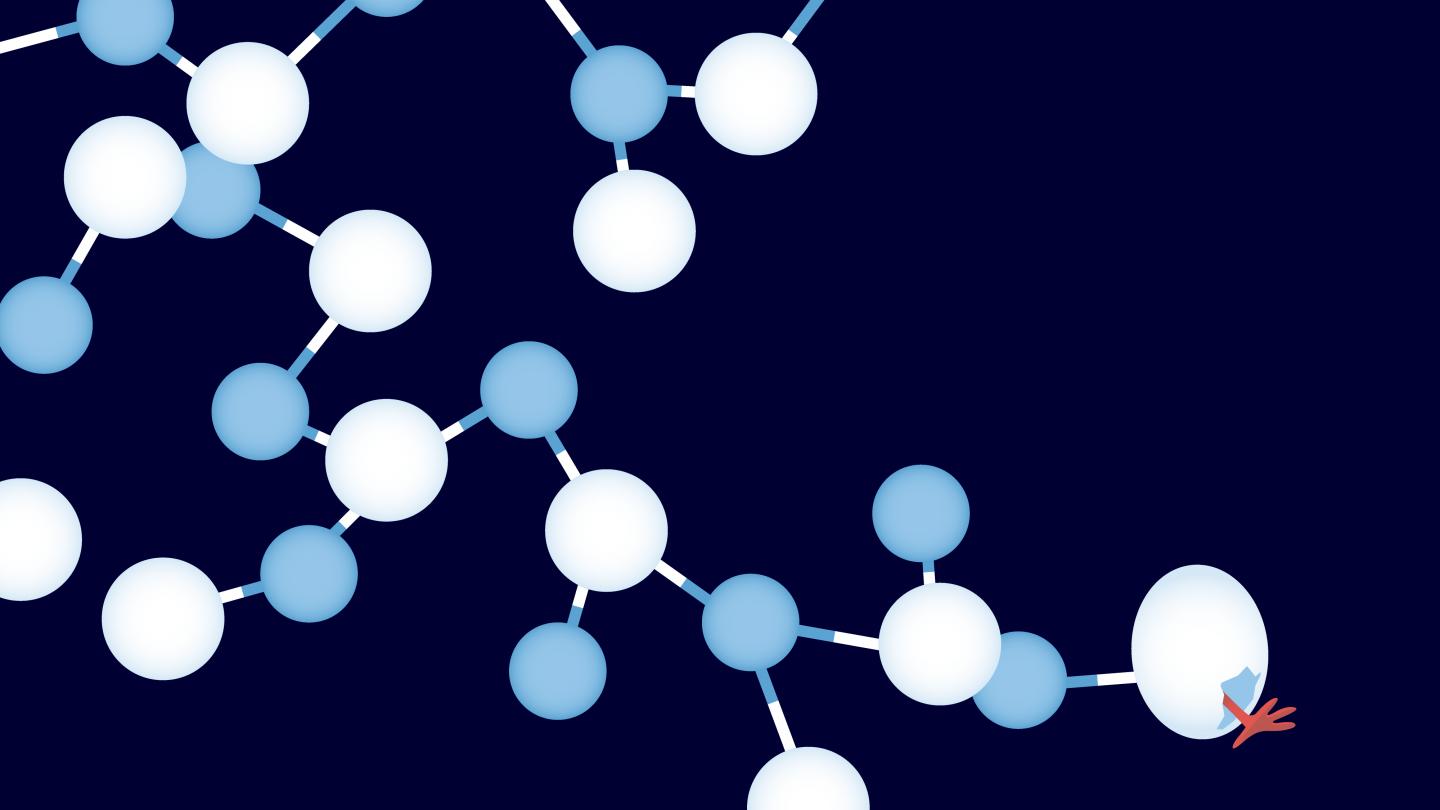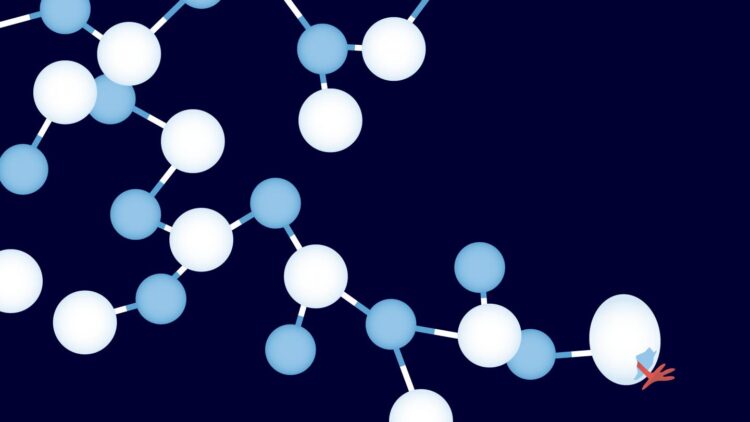UNC-Chapel Hill scientists Charles Carter, Qi Zhang, and Abigail Knight were awarded $1 million from the W.M. Keck Foundation to answer the age-old question: How did life on Earth begin?

Credit: UNC-Chapel Hill
CHAPEL HILL, NC – About four billion years ago, life arose from a primordial soup of chemicals. Somehow, amino acids linked together to form proteins, and from these proteins, the basic molecules of biological life took root, leading ever so slowly to the dawn of life as we know it. But how? How did the chaos of chemicals become ordered biology?
Scientists at UNC-Chapel Hill aim to answer this question by leaning on their expertise, their collaborative spirit, and a prestigious $1-million award from the W.M. Keck Foundation, a Los Angeles-based philanthropic organization that supports important discoveries in science, engineering, and medicine. They also hope to enhance our understanding of important cellular processes to open new avenues for disease detection and treatment strategies.
Charles Carter, PhD, professor in the UNC Department of Biochemistry and Biophysics at the UNC School of Medicine, is the lead investigator of this project. For many years, he has been conducting cutting-edge research in this field, which is one of the reasons the Keck Foundation funded this innovative collaboration. During his efforts to reveal more about how biology was originally born from chemistry, Carter reached out to a pair of Carolina colleagues – RNA biology expert Qi Zhang, PhD, associate professor in the UNC Department of Biochemistry and Biophysics, and Abigail Knight, PhD, assistant professor in the UNC Department of Chemistry in the UNC College of Arts & Sciences who focuses on mimicking proteins with synthetic polymers. The team also recruited to the project Hiroaki Suga, PhD, professor of organic chemistry at the University of Tokyo.
These four scientists have developed a collaborative strategy to test a hypothesis for how tiny chemicals wound up establishing how very basic biochemistry first came to be assembled, according to a genetic code four billion years ago.
“At a foundational level, all living things depend on their ability to convert information stored in genes into functional enzymes, or proteins,” Carter said. “This is called translation, and scientists have generally understood this process for a long time. But certain details about how this could have happened for the first time at the dawn of life have escaped the attention of the scientific community.”
Understanding the exact details of this process will allow scientists to better explore the possibilities of life outside of Earth. It could inspire new strategies for mimicking complex cellular components and processes important for human health. It will generate a useful public database for the field of synthetic biology, which has many research applications in medicine, manufacturing, and agriculture. Most of all, this project will help answer eternal questions that arose after Crick and Watson discovered the DNA double helix. Their seminal work revealed how information in genes is stored and passed from one generation to the next. But ever since the 1960s, how cells use that information has been a question at the heart of so many research questions related to nature, human health, and disease pathology.
“Our project is the first to attempt to understand how particular aspects of the translation process happened in the first place,” Carter said. “Understanding what enabled nature to make the same protein each time in accordance with the genetic code has the potential to be transformative. We are attempting to answer a profound and challenging question.”
Carter has worked on part of this complicated biochemical conundrum for more than a decade, but it has remained difficult to figure out how certain pieces of the translation puzzle could have occurred before the repetitive memory that evolution eventually provided. For instance, what was the precise chemical machinery that accelerated the translation of DNA into the short protein bonds between amino acids specified by a code, which is what must have happened for life to emerge?
“Essentially, chemistry is random; it’s chaotic,” Zhang said. “We can imagine chemistry existing before life on Earth emerged, the so-called primordial soup. But biology is neither chaotic nor random. It is ordered.”
Knight added, “Through this project, we will develop a platform to help us investigate and understand the random chemical process that eventually led to non-random life.”
The scientists are focusing on one part of the translation machinery that today is known as the ribosome – tiny RNA and associated proteins that link together amino acids in a particular order specified by instructions in a gene. Chains of amino acids, or polypeptides, must fold into active proteins, which orchestrate biological functions that distinguish heart cells from lung cells, for example. In order to fold the same way each time, the amino acid sequences must be the same, which happens because of genetic coding.
When thinking of life emerging for the first time billions of years ago, it is the linking together of amino acids that had to occur just so for ordered biology to emerge from random chemistry.
But, in our cells right now, the ribosomes have developed a kind of “memory” in order to harness the power of the genetic code. And that memory came from a previous creation of biology, previous to the creation of cells. At the start of life, there were no cells and there could not have been a ribosome like we have now. So what was there? Well, there could have been triplet sequences of DNA and RNA, and it could be possible that these triplets called codons and anticodons were able to align perfectly and to “encourage” amino acids to form peptide bonds. And from that tipping point, very rudimentary life would become possible. This, in a simplified nutshell, is what the Carolina scientists hope to test.
“Through our experiments, we aim to generate a massive amount of data on this biochemical process,” Zhang said. “Because when life starts, there tends to be a lot of chaos that gradually becomes ordered. We plan to observe what could have happened.”
Carter added, “We are extremely grateful to the W.M. Keck Foundation for supporting this innovative project, and we are confident our work will shed light on the origin of life on Earth and open the door to answering many other research questions related to our current times.”
###
To read more about this project, check out the scientific abstract at the W.M. Keck Foundation website.
Based in Los Angeles, the W. M. Keck Foundation was established in 1954 by the late W. M. Keck, founder of the Superior Oil Company. The Foundation’s grant making is focused primarily on pioneering efforts in the areas of medical research and science and engineering. The Foundation also maintains a Southern California Grant Program that provides support for the Los Angeles community, with a special emphasis on children and youth. For more information, please visit http://www.
Media Contact
Mark Derewicz
[email protected]
Original Source
https:/





